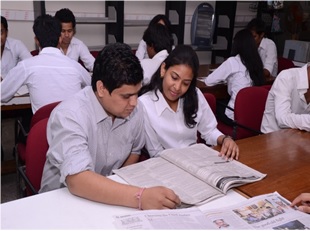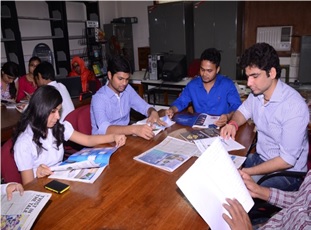School Library
In addition to the central library of Jawaharlal Nehru University, the school maintains its own library to support research and teaching activities in the school. In the school library, large amount of information is kept systematically and made available for use. The school library houses a collection of over thousand books, which have been acquired over the years with a view to aid high quality and contemporary education in the area of computer science and applications.
The school library also subscribes to a number of journals and magazines covering a wide range of fields in computer science in order to keep the student and faculty up to date with the latest advancements in the field of computer science. The school library also houses collection of handbooks and manuals to assist researchers and professionals with readily available facts and information. While most of these resources are found in printed volumes in our stacks, they are also available on CDs and DVDs. In order to share past academic efforts of the student, the school library maintains a collection of the MCA project reports, M.Tech. dissertations and PhD. thesis of students who have passed out of the school.
The collection in the school library continually grows through the acquisition of new resources to meet the ever evolving course curriculum and the needs of our students and faculties. The school library supports the learning, teaching, research and development endeavors of the university by providing appropriate materials and resources in order to have a fruitful and enjoyable library experience.

